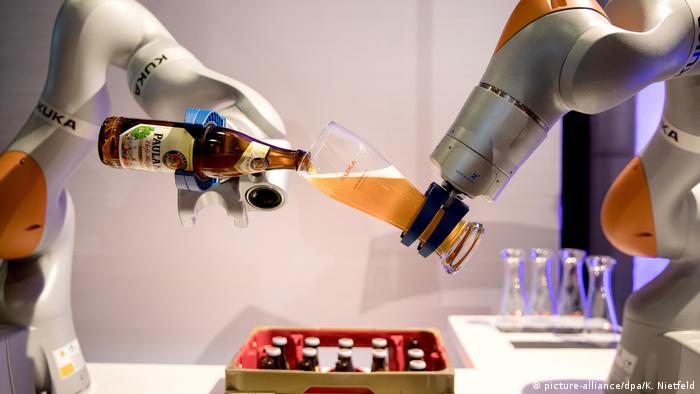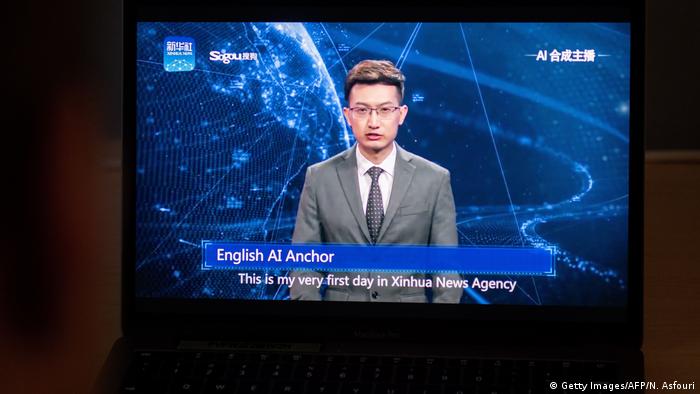In Davos, China’s Vice-President spoke out for free trade and cooperation. Some believe, however, that it can take decades until the trade conflicts with China are really solved.

China’s Vice-President Wang Qishan
For a year of escalation holds the end of the trade dispute between the United States and China, the world in breath. Currently, the two largest economies to negotiate economies on a solution, and the hope was that a high-level Meeting in Davos could contribute to the relaxation.
It was nothing, because US President Donald Trump and his Ministers said their participation because of the budget-lock in Washington in the short term.
China is represented this year, with the largest Delegation since the country sent 40 years ago for the first time, a representative to Davos, headed by Vice-President Wang Qishan.
Together bake a cake
Wang took advantage of his appearance for a clear commitment to global trade, open markets and international cooperation.
“We should work together to make the cake bigger and fairer distribution,” said Wang, referring to the world trade. “What should we do about it is to stop with the cake baking.”
Wang continued with what had begun with China’s President Xi Jinping during his appearance in Davos two years ago. Had expressed also clearly in favour of free trade and multilateralism, and a lot of encouragement.
Since the outbreak of trade conflict with the United States a year ago, however, a lot has happened. The dispute inhibits the growth. But especially has changed the view of the West on the economic power of China. In the meantime, more is talked about the fact that China is still protecting the parts of their own economy from international competition, such as in the financial sector.
From the workbench to the competitors
Thanks to China’s strong middle class the country is for the Western companies is increasingly interesting. The car maker Volkswagen sold about every second car. Also, U.S. companies no longer want to produce in China, only cheap for the world market, but a place on the huge Chinese market.
“Now these companies complain about restrictions on access in China,” says Economist Rhaguram Rajan, Deputy head of the Bank for International settlements. “A part of the geopolitical tensions resulting from the tensions between the companies.”
Because many Chinese companies are now strong competitors. The Telecom equipment supplier and Smartphone maker Huawei is an example, but also the company, the Ning Gaoning. He stands at the head of the state-owned chemical company Sinochem, which merged soon – also under his leadership – with Chemchina, a 120-billion-Dollar giants.

As the Robot manufacturer Kuka was bought by the Chinese, grew up in Germany, the skepticism
“Pretty confused”
A few years ago, Ning was able to make in the USA, large acquisitions. This would not be possible now. “We see all, as the situation is today,” said Ning in Davos. “Chinese companies are safe to invest less abroad.”
“The Chinese are just confused,” said Ning. Their own economy have developed also thanks to the investments from abroad as well. “The Chinese have, therefore, thought that they, too, are welcome, if you invest now in a foreign country. But now you no longer need to find this to be true.”
Also, the German government can bind since a change in the law, company purchases are now easier to under – reaction to the Acquisition of the robot manufacturer Kuka, the Chinese Midea group in 2016.
China Tech-Power
In Europe, the fear to lose in the case of new technologies the connection. “None of the ten largest Tech companies comes from Europe, the market is dominated by large platforms in the United States and China,” said Martina Larkin from the WEF for the presentation of a new report for the European competitiveness.
Especially in future technologies such as Artificial intelligence (AI) are way behind the Europeans. “You have to grow really,” says Larkin.
Not much time remains to you, because of China shall, in the case of Artificial intelligence a tremendous pace. “The Business is exploding,” said Stephen Schwarzman, head of the influential US investment company Blackstone. “There are endless ideas for new AI companies. China also has massive amounts of data needed. This is the Start of a Revolution.”

Artificial Intelligence? By the end of 2018, a Chinese station, presented his virtual newscaster
A long process
Technology, market power, jobs, and prosperity – these are the issues that feed the political conflict with China. The Europeans rely on the cooperation, the US is trying it with confrontation.
“There will have to be during the trade adjustments,” says the black man. How long this adjustment process will take is hard to say. “It takes time, decades, maybe even.”